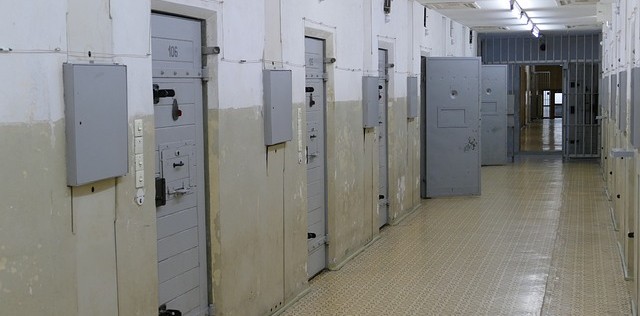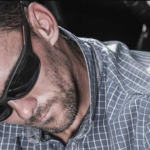Admission of Prior Bad Acts at Trial
Under Certain Circumstances, Prior Bad Acts Can Be Used Against You in Civil and Criminal Cases.

Does your past make it more likely you committed a crime?
Clients frequently tell lawyers, “I am a good person, and I can get people to come to court and say that.” This is called character evidence; for the most part, it is not admissible evidence and, therefore, cannot be used. Michigan Rules of Evidence 404(b) provides a bit of a backdoor for getting “bad” character evidence, called “prior bad acts,” into evidence by allowing for the admission into evidence of other crimes, wrongs, or acts if they meet certain criteria and are not being used for proving the character of a person. This rule has been included in several Michigan statutes.
MRE 404(b)(1) states, “[e]vidence of other crimes, wrongs, or acts is not admissible to prove the character of a person to show action in conformity therewith. It may, however, be admissible for other purposes, such as proof of motive, opportunity, intent, preparation, scheme, plan, or system in doing an act, knowledge, identity, or absence of mistake or accident when the same is material, whether such other crimes, wrongs, or acts are contemporaneous with, or prior or subsequent to the conduct at issue in the case.”
Test to See If Prior Bad Acts Can Be Used Against You
To use prior bad acts, including prior convictions, against a person, the act must pass the test established in People v Vandervliet, 444 Mich 52, 508 NW2d 114 (1993). This Michigan Supreme Court created a test that requires:
- The evidence must be offered for a reason other than to show the tendency to commit a crime.
- The evidence must be relevant to a consequential issue of fact at trial.
- The court should decide that the evidence is more important to the consequential issue or fact than it is prejudicial to the person. The court should consider if there are other means of proof other than to use this evidence.
It is also important to note that there is no presumption that the prior bad acts should be excluded. The general denial of the charges does not automatically prevent the introduction of prior bad acts evidence. Lastly, the trial court does not have a higher standard in deciding relevancy or if the evidence is more prejudicial than it is important to the facts and issues.
Prior Bad Acts Rule MRE 404(b) is Complicated To Interpret and Understand
Common sense would tell you that most things in your past should not be used against you now. However, that is the reality facing criminal defendants. For example, MRE 404(b) could allow evidence of a prior identity theft in a trial for a current identity theft. This evidence would be used to show an absence of mistake or intent. Essentially, you committed the offense before; you most likely did it now. It is difficult to explain to a layperson that this rule exists and why there is a valid reason to fear it.
MRE 404(b) and the Michigan statutes that have adopted it in some fashion have hundreds of court opinions interpreting them and applying them to individual fact patterns. It is difficult for an attorney who does not do trial work to fully understand the inner workings of MRE 404(b) and prior bad acts. Frankly, their last contact with the rule was probably law school evidence class or the Bar Examination. This is why you must have an attorney specializing in trial work when you are facing a trial, and the courtroom is their second home.
The Dangers of Prior Bad Acts Evidence
Using prior bad acts evidence in criminal trials carries significant dangers, particularly in potentially leading to wrongful convictions. This type of evidence refers to an individual’s previous misdeeds or criminal behavior and can unduly influence a jury’s perception, overshadowing the facts pertinent to the case at hand. When jurors are aware of a defendant’s past transgressions, they may be more inclined to view the defendant as a habitual offender, thereby clouding their judgment regarding the current charges. This bias can shift the focus from “Did the defendant commit this specific act?” to a more generalized and prejudicial viewpoint of “Is the defendant the type of person who could commit such an act?”
The danger lies in the possibility of a jury convicting someone based on their past rather than the evidence related to the current accusation. This is especially troubling in cases where the evidence of the crime being tried is less concrete or circumstantial. Jurors, swayed by the prior bad acts, might substitute the lack of solid evidence in the current case with the defendant’s established propensity for wrongdoing, thereby increasing the risk of a wrongful conviction.
Additionally, this kind of evidence can overshadow defense strategies, as the defense may have to spend considerable time and resources countering the impact of the prior bad acts evidence instead of focusing solely on the present allegations. This diversion can weaken the defense and increase the likelihood of an unjust verdict. Therefore, using prior convictions and bad acts evidence is a contentious aspect of criminal law, as it treads a fine line between informing the jury and unfairly prejudicing them against the defendant.

The Trial Attorneys at LEWIS & DICKSTEIN, P.L.L.C. Can Help You.
MRE 404(b) is a tricky rule to understand and protect against. It is often even trickier to explain it to laypeople. The trial attorneys at LEWIS & DICKSTEIN, P.L.L.C. are in courtrooms daily and have a mastery of the Michigan Rules of Evidence. The attorneys take their professional obligations seriously and stay completely current on the law by taking continuing legal education classes and reading case updates. LEWIS & DICKSTEIN, P.L.L.C. was founded on the principle that every United States citizen has critical constitutional rights that must be protected against governmental abuses. Further, every person is entitled to the best legal representation and must not face the government without a passionate and knowledgeable advocate in their corner.
Call us today at (248) 263-6800 for a free consultation or complete an online Request for Assistance Form. We will contact you promptly and find a way to help you.















